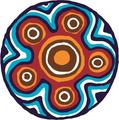Year 1 Term 3 Overviews

Dear Year 1 Families,
Welcome back for Term 3!
Year 1 students have exhibited their clear understanding of the routines and values at DCC in the first few weeks back and have jumped straight back into their learning. Below, you will find a brief outline of the core curriculum areas and what your children will be learning about this term. We encourage you to have ongoing conversations with your children about the content below in order to strengthen their learning in the learning space.
Reading
In reading, students will continue to practise a range of reading strategies to support them in comprehending the texts they read. Students will learn to make predictions before, during and after reading using information from the text and their prior knowledge to support their understanding. Students will also identify different punctuation, such as full stops, talking marks and bold words to help them read fluently. They will make connections with stories and events that have happened in their lives. Students will be making inferences about how a character is feeling using evidence, particularly text clues, to support their reasoning as well as summarising important information in a text.
Writing
In writing, students will focus on writing fiction and persuasive texts. Students will be exposed to mentor texts showing how authors utilise different ideas, word choices and punctuation to make their writing interesting. Students will be encouraged to use adjectives, adverbs and action verbs to add meaning to their writing. Sentence length, structure and conjunctions such as but so because, will also be explored to add to text fluency. Students will understand the importance of correctly applying full stops and capital letters, as well as experiment with different types of punctuation. Each week, students will engage in SMART Spelling, phonics and handwriting practise to help improve their understanding of spelling patterns and letter formation.
Numeracy
In numeracy, we will continue to build on our understanding of place value by exploring the use of materials such as MAB blocks to model 2 or 3 digit numbers. Students will practise representing and solving different addition and subtraction problems using a range of strategies and materials (number lines, tens frame, counters). Students will develop their knowledge of halves by engaging in real life scenarios that model sharing. Year 1s will continue to explore measurement using informal units to order objects according to length, mass and capacity. They will explore 2D shapes and 3D objects.
At the end of the term, students will create and ask their own questions in order to collect information, then draw and create picture graphs to represent their information.
Social Emotional Learning
In SEL (Social Emotional Learning), Year 1 students will develop a positive awareness of gender norms and practise respectful and gender friendly behaviours. Students will build on their understanding that they can play and learn with all students, even those who have different opinions, likes and dislikes. Through role plays, stories and whole class discussions, students will begin to develop an appreciation of people’s differences. They will recognise a range of kind behaviours that can be used when making and keeping friends, and identify how we can be safe when playing with our friends.
Unit of inquiry
In our Unit of inquiry, “Communities are built to meet the needs of people”, students will be exploring what makes a community and the connections they have to their community. They will investigate their own wants and needs along with those of others and how these are addressed in a community. They will design their own community and explain why the places in their community are important to them.
Ways to Help Your Child At Home:
Home Reading - Please ensure that your child is reading every night at home for at least 20 minutes, following up with a conversation about the book (this is very important to help them verbalise their understanding). Please see your child’s homegroup teacher if you are having trouble accessing Wushka or IXL.
Learning Goals - Your child’s individualised learning goals are listed on Compass. There is a reading goal, a maths goal, a writing goal and an Inquiry or SEL (social and emotional learning) goal for your child. Please read these and support your child by going through the suggested strategies to help at home. These goals are changed every 5 weeks, and you will also be informed of your child’s achievement of these goals. If you have any questions regarding your child’s goals, please see your child’s teacher.
We look forward to continuing the learning journey with you and your child in 2024. Please come and see your child’s teacher if you have any questions or concerns. After school is best for a quick chat, otherwise send your child’s teacher an email to set up an appointment time for a longer chat.
Year 1 Team
